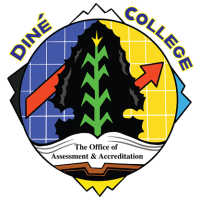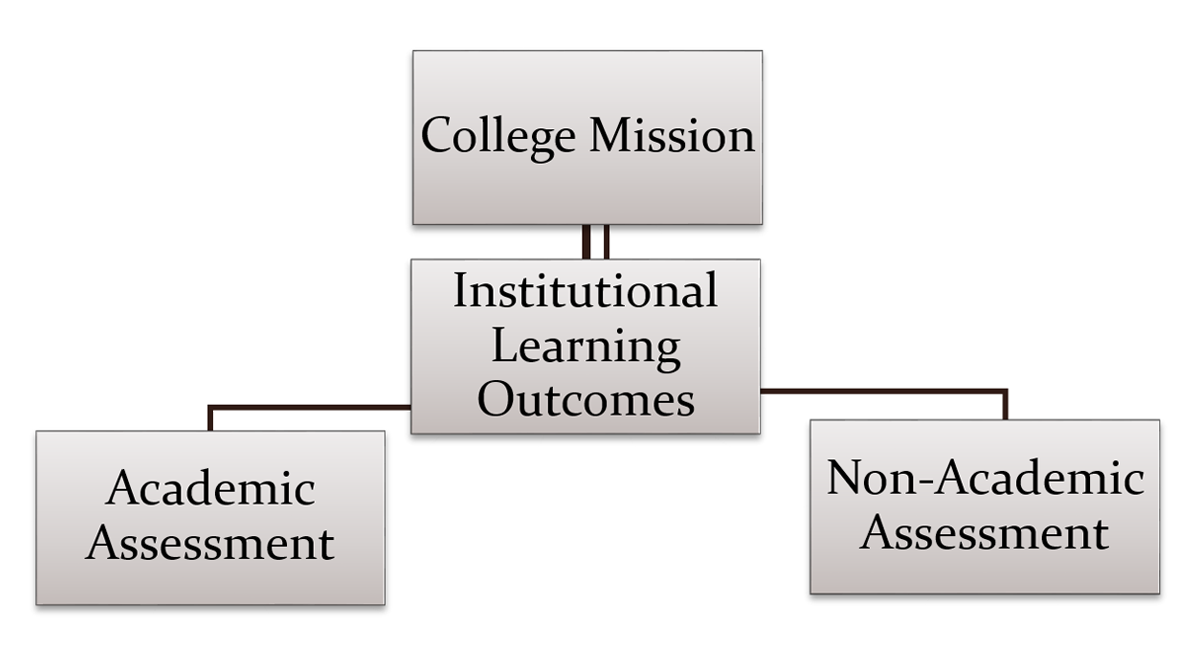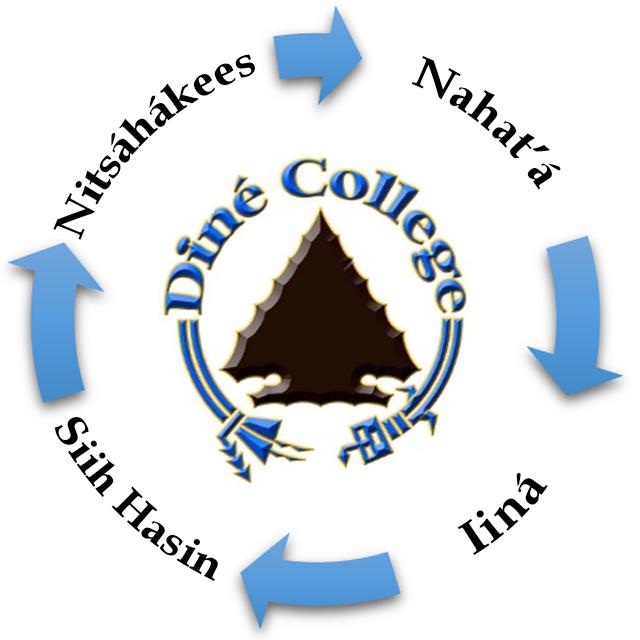Academic
Assessment
Academic assessment is the process of evaluating students’ learning, skills, and progress within an academic program. It includes various methods like exams, assignments, and projects to measure understanding and achievement of learning objectives. The goal is to improve teaching and learning by identifying strengths and areas for improvement.





Diné College Assessment
Diné College Assessment is a continuous cycle of self-evaluation and self-reflection. The purpose of engaging in assessment at Diné College is to transform and enhance the quality of learning, instruction, curriculum, and institutional effectiveness. Student learning is at the forefront of DC and we place student learning at the center of our Mission. In doing so, all college support systems—teaching, research, and support services—revolve around the goal of assisting students to achieve their learning outcomes.

- Degree Program Assessment Report 1 (DPAR1): The DPAR 1 is an overview of a degree program. Each degree program is required to submit a complete evaluation of their program(s) that students have declared as their major. These documents include selected courses from the program; not all courses are to be evaluated in one year. A program should evaluate two to four courses within the school to avoid overload of gathering artifacts. Within the assessment, there are various ways for a program to be evaluated to ensure the quality of learning is taking place. See DPAR1 Schedule.
- Degree Program Assessment Report 2 (DPAR2): The DPAR2 is a snapshot of what courses will assess and the implementation of this process. The committee reviews this information and this accountability of program evaluation. This document also includes an artifact sheet for gathering information for the programs that have a limited amount of students enrolled.
- General Education Assessment: Assessment in the general education courses follows the cycle of: assessing the outcomes, evaluating the results, and taking in the form of instructional and/or curricular review and change.
- Academic Program Review (APR): The purpose of Academic Program Reviews (APR) at Diné College is to assess the quality, viability, and effectiveness of degree programs within each academic school, comprehensively. The APR process is one piece among numerous assessment measures utilized by the institution to prioritize and strategize improvements. Every degree program (Certificate, Associate and Bachelor) at Diné College is scheduled to complete APR proceedings every ‐4 years. See APR Schedule.
The following video provides steps to navigate through the Warrior Web for assessment related items.
https://vimeo.com/430562516(Navigating Warrior Web)
The following video(s) example the development of learning outcomes and program matrix/map.
https://vimeo.com/434536966(Learning Outcomes)
The following videos thoroughly explain the DPAR1 Template, Example and an overview of the Rubric used for the evaluation of a degree program.
https://vimeo.com/430874658(DPAR1 Rubric Explanation)
https://vimeo.com/430864411(DPAR1 Example & Explanation)
https://vimeo.com/430785382(DPAR1 Tutorial Video)
The following URL thoroughly explains the DPAR2 Template and Example.
https://vimeo.com/430805604(DPAR2 Tutorial Video)
https://vimeo.com/430870135(DPAR2 Example)
A Culture of Assessment
Student Learning is Everyone’s Mission


- Sih Hasin (Reflection): Assess, review, and reflect on the current academic quality and rigor of the degree programs.
- Nitsahakees (Thinking): Openly engage in dialogue and critical thinking about ways to improve the degree programs.
- Nahat’a (Planning): Prioritize and create a plan of action to address any areas of concern identified.
- Iina (Living): Implement and achieve goals and objectives for the degree programs outlines in a multi-year action plan.
Provost
Geraldine Garrity, Ed. D.
ggarrity@dinecollege.edu
(928) 724-6623
Mail to:
Provost Diné College, Box C09, Tsaile, AZ 86556

